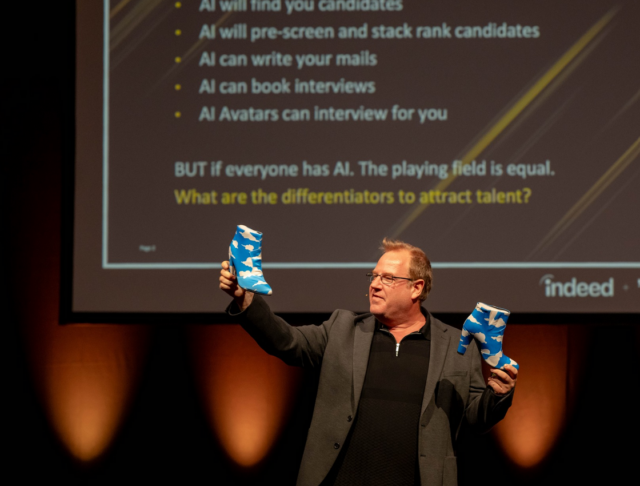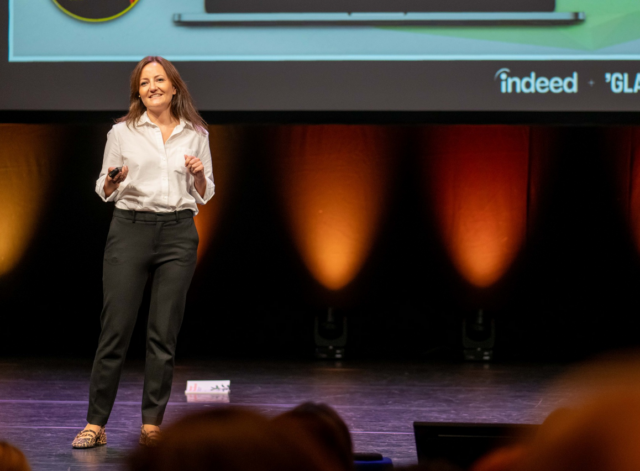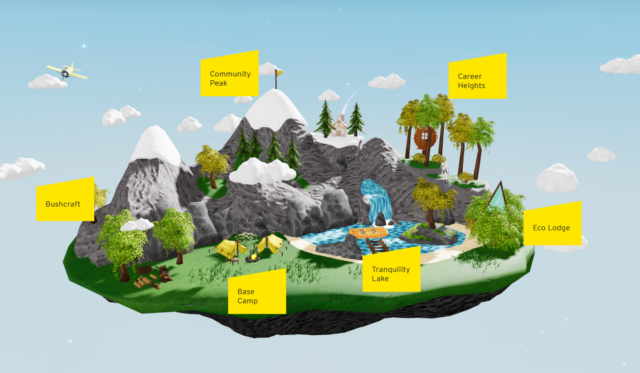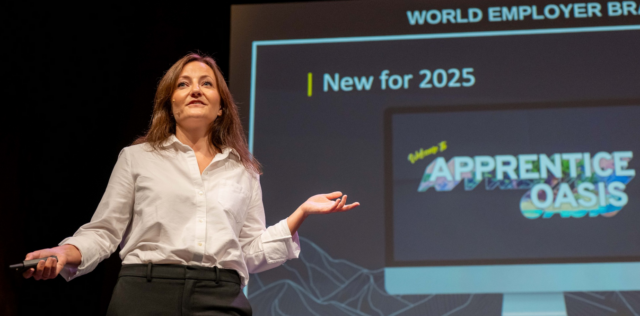If everyone is using A.I., what do organizations have left to distinguish themselves from others? According to Matthew Jeffery, currently Head of Talent Attraction and Acquisition at the UK (and Ireland) division of EY, one crucial aspect remains: employer branding. “If, as a data analyst, you find 50 to 100 fully automated InMails in your inbox, all with the message: ‘come work for us,’ then strong employer branding is essential to actually convince someone to open that email and respond.”
And this is not just a significant task for a large accounting and consulting firm like EY, or one of the other Big Four, according to Jeffery (who, by the way, is leaving EY after 4 years). The Big Four are competing in the job market not only against each other but also against major consumer brands and Big Tech, he said during a podcast recorded at the recent World Employer Branding Day in Amsterdam, where he also shared the stage with his colleague, Head of Student Liz Noble. Especially among the younger generations. “When we are in the office, we think everyone knows EY as the brilliant company we are, but as soon as we go to campuses, we find that we still have to explain who we are and what we do to 90% of the students. We often misjudge this.”
Blue and white Prince shoes
Jeffery brought a pair of cloud shoes known from Raspberry Beret by Prince, to illustrate his main message: always put yourself in the candidate’s shoes. What do they want to achieve? And what do they want to hear? “We tend to think from: what does the business want to achieve? But it’s still the candidate who has to respond. My message is therefore: always look from the candidate’s perspective.”
‘It’s still the candidate who has to respond. My message is therefore: always look from the candidate’s perspective.’
And that means for EY: debunking many myths, adds Noble, her colleague. “Many students, for example, have never heard of our brand or even our work. And if they have, they often have prejudices about it. That it’s very boring, for example, or that you must be really good at math or calculations. It’s up to us to show that this work offers them very good opportunities and can be quite varied.”
The adventure awaits
Noble and Jeffery were in Amsterdam to discuss Adventure Awaits, an interactive (UK) site aimed at the new generations Z and Alpha, where they can get to know the company in a playful way, for example through an EcoLodge (where they learn about EY’s sustainability efforts) and a Community Peak, where a mountain of information can be found about what the company does in terms of diversity, online support groups, and communities. But there is also information available about Audit and Tax, so they can choose where their preference might lie.
The site is already quite interactive via the web browser, but turns into a kind of 3D Metaverse digital immersive gamified portal when Noble’s team takes it to campuses, she explains. “Then it becomes a kind of augmented reality,” she explains. “Then we really bring it to life.” Human interaction is also indispensable in this process, emphasizes Jeffery. “On campus, Liz and her team build trust. Because we still believe that human relationships offer more meaning than A.I.”
‘We show the reality of our culture, but in a fun, accessible way.’
But, honestly, to what extent does a promise like ‘The adventure awaits‘ match the actual life at the company? More than you might think, Jeffery emphasizes. “We show the reality of our culture, but in a fun, accessible way.”
Almost 5 minutes
And it works, Noble proudly shares. The average visitor spends almost 5 minutes browsing the interactive site, with some ‘zones’ averaging visit times of 7 to 8 minutes. “In Bushcraft, for example, there are videos where recruiters explain what applying to EY entails. We hope that those candidates will help them to be more successful.” The site has also already won a significant (Digital Experience for Early Talent-) award at the 2024 RAD Awards.
And that success fuels more ambitions, she notes. For 2025, the so-called Apprentice Oasis is planned, a similar project through which EY aims to entice high school students not to go to university first but to start a training program directly at the company. This campaign will not only target students but also other decision-makers like teachers and parents. It will include more traditional campaign tools than immersive games with various experiences, Noble confirms.
Rolling out globally
Moreover, she believes it is possible to roll out the concept more broadly than just England and Ireland. “Freddy the Fox is probably as English as it gets. But there’s little in the game concept that wouldn’t allow it to be used globally. I see no reason why that couldn’t be the case. The concepts we are addressing are quite universal for Generation Z and Generation Alpha.”
Jeffery emphasizes the importance of staying relevant: “It’s about continuously innovating. If we stop, we will fall behind, and that would be a disaster. If we rely too much on A.I., we will lose that human touch.”
Noble adds: “The most important thing is the human connection. Without that, our results will suffer.”




